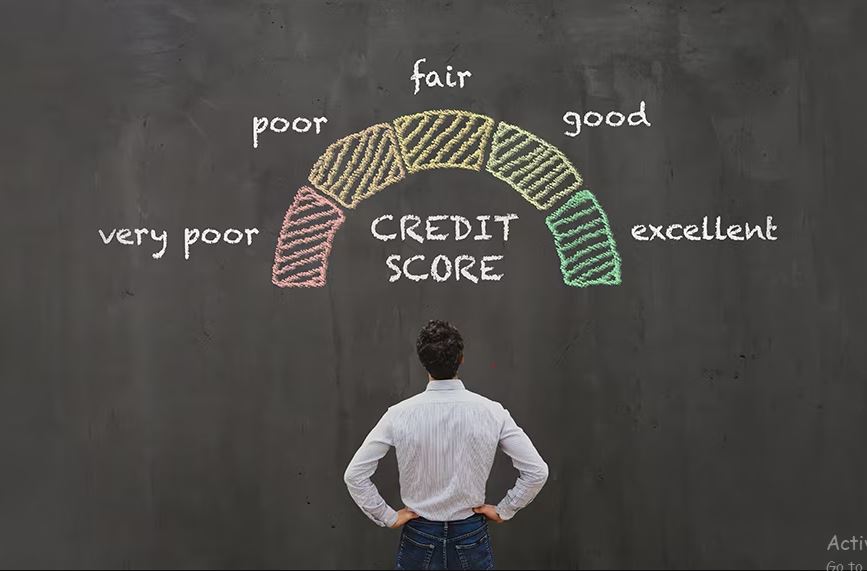The Mystery Behind Debt Consolidation Loan Denials Unveiled
Dec 10, 2023 By Triston Martin
You've been working hard to streamline your finances and manage multiple debts and decided to take the plunge by applying for a debt consolidation loan. However, to your dismay, your application was denied.
It's not an uncommon scenario, and in this article, we'll unravel the mystery behind the rejection of debt consolidation loans, shedding light on why financial institutions sometimes slam the door on your consolidation dreams.
What to Know About Debt Consolidation Loan?
Embarking on the path of debt consolidation requires more than just a desire to simplify your financial landscape. Before diving into the intricacies of why your debt consolidation loan might face hurdles, it's crucial to establish a solid understanding of what debt consolidation entails.
Debt consolidation involves combining multiple debts into a single, more manageable loan. The primary goal is to streamline payments and, in some cases, secure a lower interest rate, ultimately making it easier for borrowers to regain financial control.
Types of Debt Consolidation
Let’s now have a look at the types of debt consolidation!
Balance Transfers
- Shifting high-interest credit card balances to a single card with a lower interest rate.
- It often involves a promotional period with zero or low interest rates.
Personal Loans
- Borrowing a lump sum from a financial institution to pay off multiple debts.
- Fixed interest rates and structured repayment plans.
Home Equity Loans
- Utilizing the equity in your home as collateral to secure a loan for debt consolidation.
- Typically, it offers lower interest rates, but it poses the risk of home equity as collateral.
Key Considerations Before Applying
Here are the key considerations that should be ensured before applying. Owing to these, you can ditch the disapproval thingy, cutting its possibility from the roots.
Credit Score

Your credit score is a pivotal factor in determining the approval of your loan application and the interest rate you can secure. The higher your credit score, the more likely you are to receive favorable terms.
Financial Stability
Lenders take a holistic approach to assessing your financial health, including evaluating your Income stability. Demonstrating a consistent income and exhibiting responsible financial habits significantly enhances your chances of loan approval.
Debt-to-Income Ratio
Your current debt-to-income ratio is a crucial metric that lenders scrutinize. Evaluating this ratio provides insight into your financial position. A lower debt-to-income ratio suggests a healthier financial standing, showcasing your ability to manage existing financial obligations.
Why Was Your Debt Consolidation Loan Not Approved?
Your dream of a debt-free horizon faced an unexpected roadblock – a denial letter. Let's dissect the reasons behind this unwelcome detour and explore how each factor plays a crucial role in the loan approval process.
Credit Score Conundrum
Your credit score is akin to a financial report card that lenders scrutinize with eagle eyes. A less-than-ideal score can act as a formidable barrier to loan approval. Lenders view a higher credit score as an indicator of reliability in meeting financial obligations. If your score falls short, it's time to address the problem and work towards elevating your creditworthiness.
Income Instability
Lenders play the role of financial architects, carefully examining the structural integrity of your income. If your earnings exhibit fluctuations or inconsistencies, it raises concerns about your ability to weather financial storms. Stability becomes the keyword here, and showcasing a reliable income source can be pivotal in reassuring lenders of your financial resilience.
High Debt-to-Income Ratio (DTI)
Picture your financial health as a delicate balancing act between income and existing debts. If the scales tip unfavorably towards an overwhelming debt load compared to your income, lenders may hesitate to add another layer to the equation. Managing your debt-to-income ratio is crucial, requiring strategic planning to alleviate concerns and create a more appealing financial picture.
Incomplete or Inaccurate Information
In the world of financial applications, the devil truly lies in the details. An oversight in your application—be it a missing document or inaccuracies in financial information—can lead to swift rejection. Ensure that all the information provided is not only accurate but also complete. Thoroughness in this regard can be the difference between approval and denial.
What to Do If Your Debt Consolidation Loan Application Is Rejected?
The rejection letter isn't just a door closing; it's an invitation to reassess and strategize. Each reason for denial holds a clue to your financial puzzle. Now, let's decipher these clues and unveil the steps you can take to turn a rejection into an opportunity for financial growth.
Understand the Rejection Letter

The rejection letter isn't a mere formality; it's a key to unlocking the mystery behind the closed door. Take the time to decipher the reasons outlined in the letter. Understanding the specifics allows you to tailor your response effectively, addressing the root causes of the denial.
Credit Score Rehab
Elevating your credit score is akin to giving your financial profile a much-needed makeover. Dive into your credit report, identify areas for improvement, and embark on a journey of responsible financial behavior. Timely payments, debt reduction, and strategic planning can breathe new life into your credit score.
Address Income Concerns
Income stability is a cornerstone of financial trust. If your income was a stumbling block, consider providing additional documentation that highlights its reliability. Alternatively, exploring the option of a co-signer with a more stable financial background can add an extra layer of assurance for lenders.
Tackle Debt-to-Income Ratio
Your debt-to-income ratio is a metric that demands attention. Prioritize paying off high-interest debts to not only reduce the overall debt load but also demonstrate a commitment to financial responsibility. This strategic approach can create a more favorable balance, potentially swinging the approval pendulum in your favor.
Review and Correct Application Details
The devil might be in the details, but so is the key to rectifying them. A thorough review of your application is essential. Double-check every piece of information provided, ensuring accuracy and completeness. Rectifying any errors or omissions can lay the groundwork for a successful reapplication.
Conclusion
In the world of debt consolidation loans, rejection is not the end but a detour. Understanding why your application was denied empowers you to take corrective measures. Whether it's boosting your credit score, stabilizing your income, or addressing your debt-to-income ratio, there are tangible steps you can take to enhance your financial profile.








